
Whether you believe age is just a number or your back started to ache the minute you turned 30, it's likely your running will change as you begin to blow out more birthday candles. Many road races consider runners over the age of 40 to be "masters," and they often have their own award categories (and sometimes even age graded results).
However, depending on the organization (such as with USA Track & Field), someone as young as 25 (!) could be considered a "pre-masters" runner. It's no secret that performance often declines as we age, but it's not necessarily a given. In fact, many runners hit their stride decades after graduating from high school. So whether you're aiming for an age-group win or just want feel good on your next jog, keep these training tips in mind.
Use busy seasons (like having young children) to your advantage. Amanda, age 37, has set a personal record in every event from 1600 meters to the marathon in recent years. She says her secret is simply being more flexible with her training. In addition, she says, "Walking a ton and chasing after my kids is great cross-training in disguise!" Abby M., age 36, agrees that motherhood has kept her moving. She jokes that having a young kid (and never being able to sit down!) prevents her from getting too stiff.
Keep things interesting with new workouts and the latest tech. Joey, age 35 and co-founder of Punch Pedal House gym, advises older clients to incorporate HIIT workouts, such as ladders and hurdle workouts, to keep things from getting stale. He says, "I would not combine these with a long run, but add them to your interval workout days." Additionally, Joey recommends compression-focused sessions with Speed Hound or Normatec boots before and after each workout regardless of intensity.
Get creative with your schedule. Kristy, age 43 and owner of Run The Long Road Coaching, says that recovery from workouts and long runs may take longer as we age, so it's important not to force an effort just for the sake of sticking to a schedule. On a similar note, Sarah S., age 36, says that moving away from a weekly schedule to a 10-day training cycle has allowed more time for recovery.
The little things (flexibility! strides!) make a difference. Sarah R., age 37 and an Olympic trials qualifier in the marathon, recommends the Athletes for Yoga app, as well as more rest between quality efforts. And Emily, age 37, says that her key to success is "always doing a warm-up; not just on hard workout days!" She also adds in drills and strides to keep her legs feeling sharp.
Focus on the now (not who you used to be). Claire, age 36, says it's important to look forward, not backward, as we continue running and competing. Her advice to herself is to "stop comparing my current self to my childless, late 20s self."
Rest and rest some more. Jessica, age 37 and a 2:57 marathoner, says the secret to her success is "giving myself permission to go to bed silly early." Sesa, age 39, agrees and says she prioritizes more sleep above all else. Abby B., age 40 and owner of Reform physical therapy, encourages runners to play the long game by focusing on strength training and recovery. "More is not more," she cautions.
READ THIS NEXT: Here's How Older Runners Are Running Longer Than Ever Before
Get ACTIVE on the Go


Couch to 5K®
The best way to get new runners off the couch and across the finish line of their first 5K.
Available for iOS | Android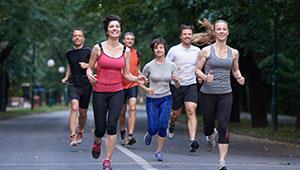


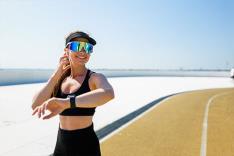
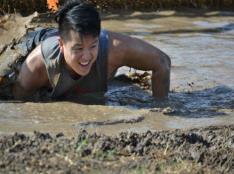
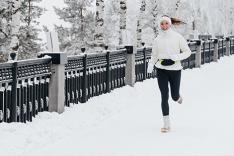

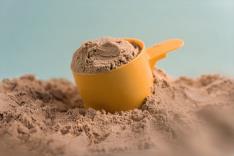
Discuss This Article